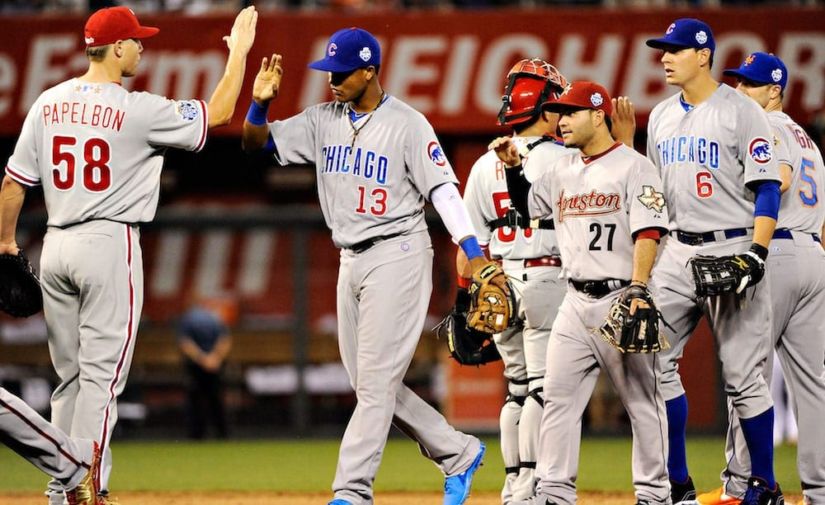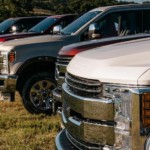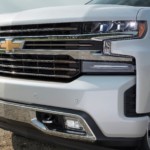Chevy’s relationship with Major League Baseball has been ongoing since 2005. The car brand ultimately developed the Chevrolet Youth Baseball program, and the company has donated more than 135,000 equipment kits, revamped more than 9,000 parks, and impacted 6.7 million children since its inception.
Of course, one of the brand’s other requirements is to award a brand-new Chevy vehicle to the winner of the All Star Game MVP. Over the years, an array of impressive vehicles have been awarded, with one participant taking home both a Corvette and Silverado. Continue reading to see which vehicles they chose, and perhaps you’ll be inspired to drive a Chevy of your very own…
2017: Robinson Cano, Chevrolet Corvette Grand Sport
The Mariners All-Star second baseman knew what he was doing when he selected the Chevrolet Corvette Grand Sport after being awarded the 2017 Ted Williams All-Star Game Most Valuable Player award. The sporty, muscular vehicle is the perfect choice for an athlete, as the brand took both style and performance cues from the original Corvette created by the model’s first chief engineer, Zora Arkus-Duntov.
Thanks to the insanely powerful, 460-horsepower engine (and the accompanying paddle-shift eight-speed automatic transmission), Cano was surely able to capitalize on some of the best performance specs in the entire industry. The Grand Sport version of the model is capable of accelerating from zero to 60 miles per hour in an unmatched 3.6 seconds. The Corvette can also travel a quarter of a mile in only 11.8 seconds at a blistering 118 miles per hour.
Of course, the brand is also focused on their relationship with the Chevrolet Youth Baseball program and Major League Baseball, and Cano’s intangibles certainly matched the groups’ initiative.
“Robinson Canó turned in a tremendous performance tonight and is an excellent example to all baseball fans, and especially our kids, that hustle, determination and teamwork are what wins, and that is why Chevrolet is proud to present the MVP award,” said Brian Sweeney, the U.S. vice president of Chevrolet. “At Chevrolet, we appreciate the positive effect that playing sports has on our kids and that is why it is so important for our brand and our dealers to support baseball at every level.”
Cano also had the opportunity to choose the rugged Colorado ZR2 pickup. That would have been a perfectly logical option, but we can’t blame the player for opting for the legendary Corvette.
2016: Eric Hosmer, Chevrolet Colorado Diesel Midnight Edition
Meanwhile, Kansas City Royals first baseman Eric Hosmer opted for the pickup truck after winning honors in 2016. The slugger ultimately decided to choose the Colorado Colorado Diesel Midnight Edition, which was a conservative choice for the youngster (especially when you consider that he could have gone with the 50th Anniversary Edition Camaro SS Convertible).
Of course, we’re certainly not saying that the pickup truck was a poor decision. Quite the contrary, as the Colorado is one of the most impressive vehicles in the industry. The Colorado Diesel Midnight Edition builds upon the top-of-the-line version of the truck, with engineers adding an intimidating all-black front end, as well as a body-colored grille, bumper, and badging. To top it off, engineers included black 17-inch wheels with the rugged and durable Goodyear DuraTrac tires.
“Hosmer’s spectacular on-field performance tonight demonstrates to all baseball fans and especially our kids that hard work, determination and teamwork is what wins, and that is why Chevrolet is proud to present the MVP award,” said Sweeney. “At Chevrolet, we appreciate the power of play and the positive effect that it has on our kids.That positive effect on our kids and ultimately on our communities is why it is so important to us and our Chevrolet dealers to support baseball at every level.”
2015: Mike Trout, Silverado Midnight Edition
Similar to Hosmer, Los Angeles Angels outfielder Mike Trout had the opportunity to choose between a Camaro Convertible and a Midnight version of one of their famed pickups. Also similar to Hosmer, Trout opted for the truck. The 2015 All-Star Game MVP chose the impressive Silverado Midnight Edition, which adds all-black features like the previous year’s Colorado.
“Mike’s on-field performance was All-Star caliber and worthy of one of Chevrolet’s All-Stars,” said Sweeney. “Chevrolet also encourages future All-Stars through our more than 1,500 dealers who support Chevy Youth Baseball.”
2014: Mike Trout, Corvette Stingray
Maybe Trout chose a pickup truck in 2015 because he was awarded one of Chevy’s luxurious racers in 2014. After being awarded the 2014 MVP, Trout opted for the 2014 North American Car and Truck of the Year, the Corvette Stringray (the outfielder could have alternatively chosen the Silverado full-size pickup truck).
An additional lucky fan also got their hands on an exclusive version of the Stingray. The brand announced that they were auctioning a model that included a hood that was autographed by all of the All-Star participants. The car was ultimately sold, with all proceeds going toward charity.
“Tonight, we honor the achievements of Mike Trout, the 2014 All-Star Game Most Valuable Player, while we showcase our own MVPs, the Corvette Stingray and Chevrolet Silverado,” said Paul Edwards, the U.S. vice president of Chevrolet Marketing. “We hope many of our fellow baseball fans join us to help raise funds for a worthy cause.”
2013: Yoenis Céspedes, Silverado Pickup (Home Run Derby)
Chevy’s relationship with the MLB has gone back for a handful of years, although they haven’t always awarded a vehicle to the All-Star Game Most Valuable Player. For instance, in 2013, they awarded New York Mets outfielder Yoenis Céspedes a Silverado full-size pickup after he won the Home Run Derby.
The brand combined with Major League Baseball to revamp the contest, as two teams competed against each other to raise money for several charities, including the Boys and Girls Clubs of America and MLB’s Reviving Baseball in Inner Cities (RBI) program. For example, Chevy and MLB combined to donate $23,000 for each home run that was hit on each player’s “ninth out.”



